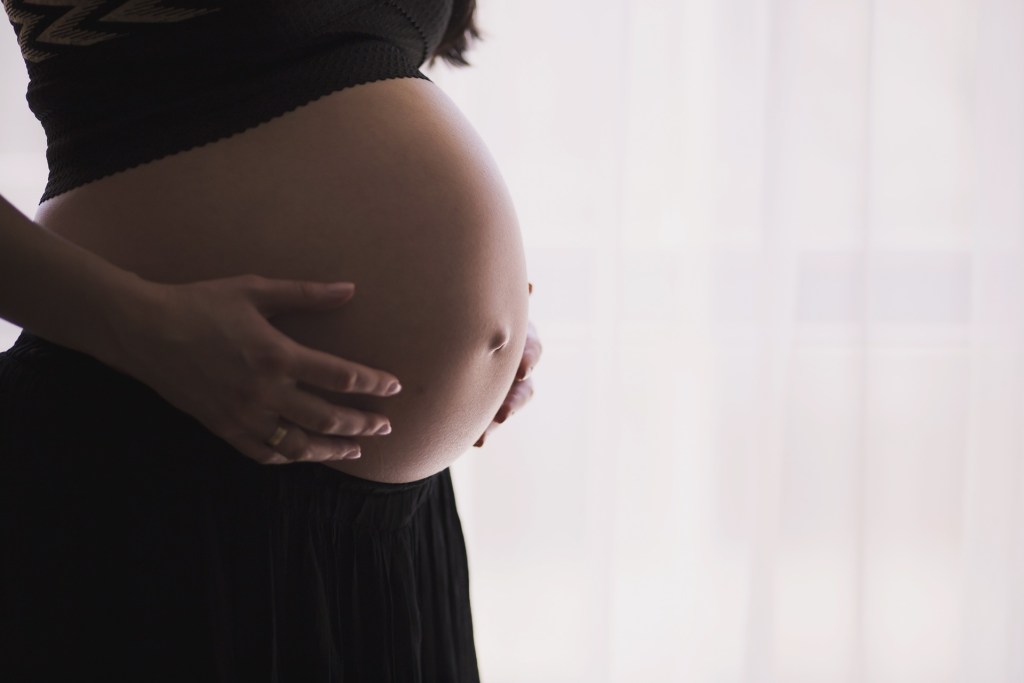Motherhood is a journey of discovery that unveils hidden strengths, boundless love, and resilience. It’s an amazing experience, carrying another life within, nurturing it, and eventually bringing it into the world. Pregnancy shows glowing skin, baby showers, and adorable baby bumps. Mothers are envisioned as selfless, warm, and forever patient creatures who transform their worlds for the sake of their children. There’s undeniable beauty in this vision, yet it only partially encompasses part of the experience. It’s a joyous, fulfilling, and life-altering journey, but it isn’t devoid of intricate facets, unpleasantries, and less spoken-about hardships.

While the mainstream narrative about motherhood and pregnancy often leans towards the rosy and radiant, we need to make space for discussions that encompass the less glamorous, the challenging, and the taboo. The discomfort of these topics should not silence the dialogue; instead, it should be seen as an impetus for understanding, empathy, and support. The aim is to normalize these discussions, creating a space for acceptance and inclusivity. It’s important to remember that the quintessential image of the ‘perfect mother’ or ‘ideal pregnancy’ is a construct, and the reality might be different, raw, and sometimes distressing. And that is perfectly okay.
The Unseen Battle of Postpartum Depression
Postpartum depression (PPD) is a mental health condition that can affect new mothers. It is characterized by extreme sadness, anxiety, and exhaustion that can interfere with a mother’s ability to care for herself or her baby. Though it affects many women, it often goes undiscussed due to the stigma attached to mental health issues. PPD is not a reflection of a mother’s ability or her strength. It’s not a choice and certainly not a sign of weakness. Instead, it’s a serious health condition that requires understanding, empathy, and medical intervention.
Mental health should never be an uncomfortable topic. A new mother may be dealing with significant hormonal changes, physical exhaustion, and the overwhelming responsibility of caring for a newborn. All these factors can contribute to PPD and make dealing with depression symptoms feel impossible. It’s essential to raise awareness about this condition, encourage women to seek help and remind them that it’s okay to not feel okay.
Society depicts the post-birth period as a time of unconditional joy and fulfillment. While this can be true, it may also present an array of challenges, which, when combined with hormonal imbalances, can contribute to PPD. An open dialogue ensures that mothers suffering from PPD do not feel isolated and misunderstood but supported and cared for.
The Stigma of Detoxing During Pregnancy
Pregnancy is a time of great joy but also a time of transformation, which may mean making significant lifestyle changes. For some women, this might mean confronting and detoxing from harmful substances, including drugs and alcohol. However, this topic often sits behind a curtain of stigma and judgment.
Drug and alcohol addiction is a disease; like any other disease, it demands treatment and understanding, not judgment or scorn. Detoxing during pregnancy is a courageous step, but it can be daunting considering societal expectations and stigmas. However, it’s crucial to remember that the aim is a healthier life for both mother and baby. A medical detox during pregnancy and support is vital during this time. Specialists can devise a detox plan that considers the well-being of both the mother and the fetus. It’s important to stress that self-detoxification can be dangerous, especially during pregnancy.
The journey of detoxing is laden with physical and emotional challenges. The body reacts to the withdrawal of substances it has depended on, leading to various symptoms, from discomfort to severe health issues. Simultaneously, the emotional burden and societal pressure can add to the challenge. The focus should be on the courage to embark on this journey. We need to foster an environment of empathy, encouragement, and positivity around such mothers. They should be applauded for choosing a healthier path for themselves and their unborn children and supported throughout their journey.
Body Image and Self-esteem Issues: An Unvoiced Struggle
Pregnancy and motherhood bring about tremendous changes to a woman’s body. As the baby grows, so does the mother, but the post-birth phase is often accompanied by a struggle to return to the ‘pre-baby body.’ The pressure to shed pregnancy weight and the expectations to adhere to societal standards of beauty can negatively impact a woman’s self-esteem and body image. Mothers might grapple with stretch marks, loose skin, or added weight, and these physical changes can trigger feelings of insecurity. The transition is challenging and made more challenging by the unrealistic portrayal of post-pregnancy bodies in the media.
Reminding mothers that their bodies have performed a miracle is vital, and the changes are signs of that wonder. Each mother’s journey to accepting her post-pregnancy body is personal and unique. Body positivity and acceptance should be encouraged, and comparisons to societal standards or other mothers should be discouraged.
Navigating Relationship Changes During Pregnancy
Pregnancy isn’t just a journey for the mother but for her partner as well. It can lead to significant shifts in the dynamics of their relationship. Hormonal changes, mood swings, the physical discomfort of pregnancy, and the anticipation of a major life change can all cause emotional upheaval. While some couples grow closer during this time, others might find the changes challenging to navigate. It’s not uncommon for mothers-to-be to feel misunderstood, anxious, or unsupported. These feelings are valid and need to be expressed without fear of judgment. Communication plays a crucial role in this journey. Couples need to talk about their fears, expectations, and the changes they’re experiencing. Seeking help from a counselor or joining support groups can also be beneficial.
Every mother’s journey is different. Some paths are smooth, while others are winding and steep. All experiences, however, are valid and worthy of discussion. We can create a more inclusive, empathetic, and realistic narrative by opening the dialogue about these lesser-discussed aspects of motherhood and pregnancy.

Leave A Comment